MICHauto Testifies on Supply Chain and Talent Shortages Impacting the Industry and Economy During Field Hearing with Sen. Gary Peters
March 28, 2022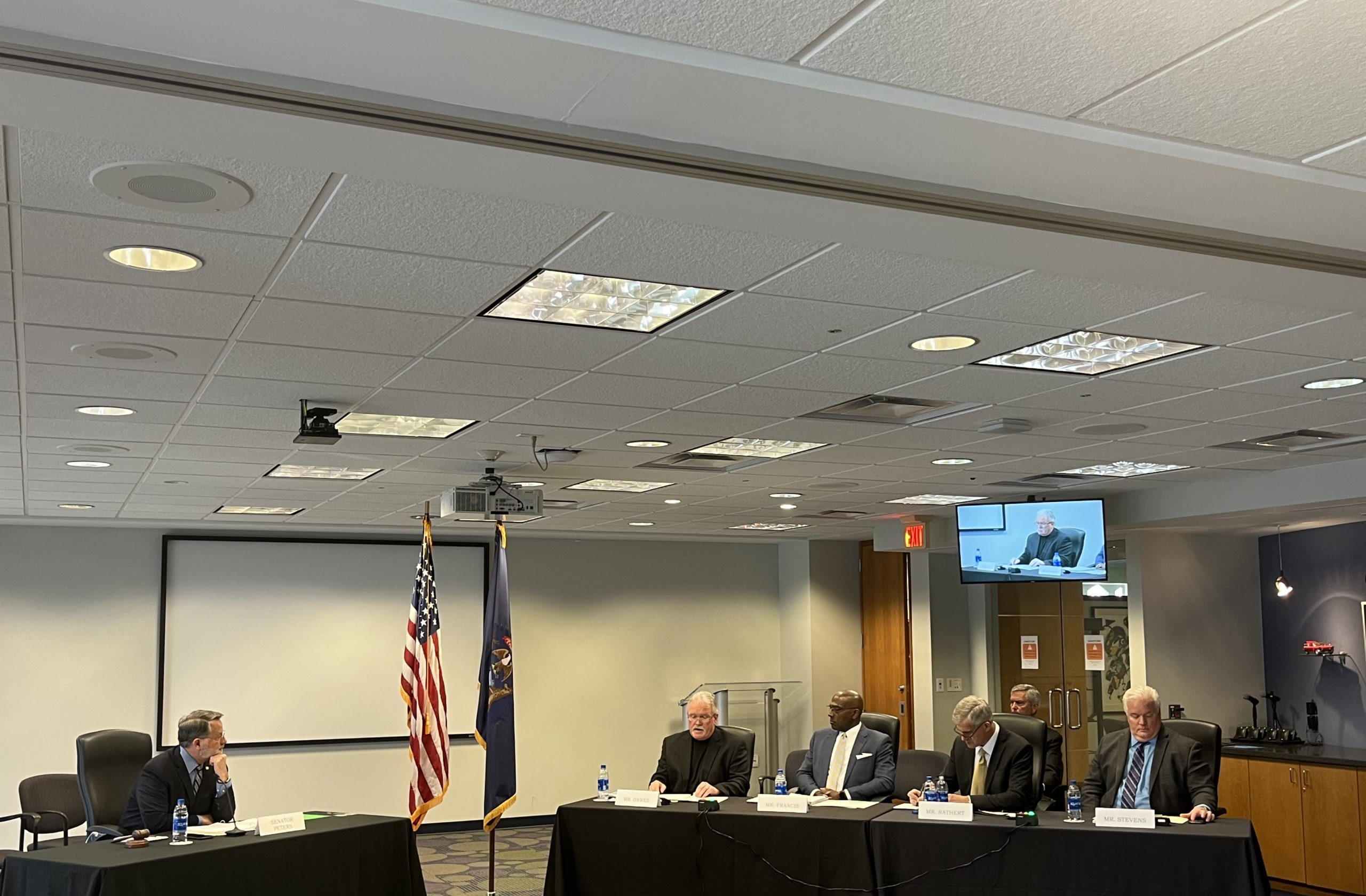 Today, March 28, MICHauto Executive Director Glenn Stevens Jr. testified before the Senate Commerce Subcommittee on Surface Transportation, Maritime, Freight, and Ports during a field hearing led by Sen. Gary Peters on autonomous vehicles. Speakers from KLA, the UAW, and the Alliance for Automotive Innovation joined Stevens in providing testimony. Several MICHauto investors were present for the hearing including Denso International America Inc., Dunimas Energy, Foley & Lardner LLP, Ford Motor Company, Piston Group, and Stellantis.
Today, March 28, MICHauto Executive Director Glenn Stevens Jr. testified before the Senate Commerce Subcommittee on Surface Transportation, Maritime, Freight, and Ports during a field hearing led by Sen. Gary Peters on autonomous vehicles. Speakers from KLA, the UAW, and the Alliance for Automotive Innovation joined Stevens in providing testimony. Several MICHauto investors were present for the hearing including Denso International America Inc., Dunimas Energy, Foley & Lardner LLP, Ford Motor Company, Piston Group, and Stellantis.
In his testimony, Stevens brought attention to the current issues impacting the automotive and mobility industry with an emphasis on supply chain shortages, the lack of high-skilled talent, and the future of electric and autonomous vehicles. Stevens highlighted the need for bipartisan legislation and investment to address current supply chain issues, expand manufacturing job opportunities, and position the U.S. and the state of Michigan as leaders in mobility and innovation.
Read Stevens’ testimony below and watch the full video.
The United States and particularly Michigan remain at the forefront of automobility innovation and production worldwide. The Great Lakes State leads the nation in the number of automotive manufacturing jobs, investment in automotive R&D far outpaces the rest of the nation, and Michigan’s auto manufacturing output represents 18% of all U.S. vehicle production. However, as both the COVID-19 pandemic, the weeklong closure of the Ambassador Bridge in early February, and Russia’s recent invasion of Ukraine have made clear, episodes of instability that transcend national borders also have painful impacts on the global supply chain and Michigan’s signature industry. As this committee knows, the current shortage of semiconductors has hampered the auto industry’s ability to build and sell vehicles here in America and around the world. In fact, according to AutoFocus Solutions, Michigan Automakers produced 280,000 fewer vehicles, known as “unrecoverable vehicles,” in 2021 due to the semiconductor shortage. Furthermore, North America, in general, produced 2.3 million unrecoverable vehicles compared to China at one million.
There is no shortcut or silver bullet to solve this issue, chips are among the most important components in the assembly of vehicles and will only become more important as autonomous and electric vehicles become more ubiquitous throughout the market. Currently, a disproportionate amount of chip manufacturing is done far from our shores, in countries like Taiwan and South Korea and the shortage of chips now stalling U.S. auto production, illustrates the problematic nature of relying on these foreign suppliers. Therefore, our elected, labor, and industry leaders must prioritize building a more resilient domestic supply chain.
Intel’s announcement earlier this year that it would invest $20 billion in the construction of two chip factories in Ohio is a promising signal that policymakers and the private sector are recognizing the importance of this issue. Lawmakers in Washington can turbocharge these efforts by passing the CHIPS Act, which would invest $52 billion to expand domestic research, design, and production of chips. There are several other important pieces of legislation I would like to highlight as well. The FABS Act creates a tax credit for semiconductor manufacturing and design that will further incentivize domestic production. The Investing in Domestic Semiconductor Manufacturing Act will ensure that the CHIPS Act, once enacted, will include U.S. suppliers that produce the materials and manufacturing equipment that enable semiconductor manufacturing. This will further incentivize the production of materials and equipment in the United States while also reducing the risk of foreign supply chain bottlenecks. The Securing Semiconductors Supply Chain Act will direct the Commerce Department’s SelectUSA program to solicit feedback from states about how they are working to attract foreign direct investment related to semiconductor supply chains, and then to develop a strategy to build on states’ efforts and augment them with federal support. All these complementary and bipartisan pieces of legislation demonstrate what my colleagues from industry and labor also know, that building this technology in the United States isn’t just good for business and the American worker, it’s sound public policy.
Investing more in the domestic production of chips means expanding not just the number of manufacturing jobs but also high-tech jobs associated with the automotive industry and strengthening our ability to keep such jobs in the United States. This is both an opportunity and a challenge as these represent thousands of good, high-paying jobs but will require a sophisticated talent strategy that requires both the public and private sectors to implement. Congress could take a huge step toward implementing such a strategy by agreeing upon a finalized competitiveness package, that reconciles the House’s Creating Opportunities for Manufacturing, Pre-Eminence in Technology and Economic Strength (COMPETES) Act and the Senate’s U.S. Innovation and Competition Act (USICA). In addition to including much of the legislation I previously mentioned that will directly support U.S. manufacturing, both the House and Senate legislation includes significant new funding for our nation’s science agencies and R&D that will drive innovation in all kinds of important areas, from AI and machine learning to Critical Minerals Mining Research. This legislation would also establish a regional technology hub program that could greatly benefit a region like ours as it grapples with the automobility industry’s rapid transition around both EVs and AVs.
Speaking of AVs, to ensure that we’re not just building the vehicles of today but also innovating for those of tomorrow, policymakers should act now. To this end, we encourage the adoption of federal legislation that will create a safer and more robust autonomous vehicle testing and research environment. Therefore, the Senate should revive the AV START Act. First introduced to the Senate in 2017 by Senators Peters and Thune, this legislation would create a Highly Automated Systems Safety Center of Excellence to review, assess and validate the safety of self-driving vehicles; expand testing exemptions to ensure vehicle manufacturers and manufacturers of automated driving systems are eligible and give the National Highway Traffic Safety Administration the authority to expand exemptions for automated vehicles. This is the type of proactive policymaking that can future-proof the nation for what may otherwise be a tumultuous period for both the industry and drivers as more and more autonomous driving technology is adopted.
Finally, in order to ensure that we are the leaders in this technology and other mobility innovation, we need more high-skilled and high-tech workers to come to the United States. Lawmakers from both parties are aware, in the global economic competition with China and other economic powers, there is perhaps nothing more important than the battle over talent attraction and retention. Despite the much-heralded rise of China over the last several decades, there is still no better place to innovate and do business than the United States. Our universities and research institution are the best in the world. Our business climate and rule of law ensure that new businesses can grow faster and without the fear of public or private interference or corruption that they might encounter elsewhere. Lawmakers can sharpen this competitive edge by taking up the bipartisan immigration legislation currently in the House of Representatives. The Fairness for High-Skilled Immigrants Act would remove arbitrary per-country caps on the number of high-skilled foreign workers that can come to the United States each year. The current system caps the percentage of green cards that any one country can receive at seven percent, a threshold that is quickly met by large populous countries with many high-skilled workers eager to come to our country. Removing these caps will ensure that a first-come-first-served and merit-based system can be implemented that will positively benefit America’s need for high-skilled talent in places like Southeast Michigan and around the country.
In closing, Michigan, the birthplace of the automobile, remains globally competitive as a leader in the automobility sector. The industry employs over 1.1 million people in the State, contributes $304 billion every year to the State economy, and continues to draw significant foreign talent and investment to Michigan. However, this status will be challenged as the industry continues to undergo historic transformations in the coming years. Policymakers would therefore be wise not to let the past success of the American auto industry lull us into a false sense that we will continue to enjoy such success in the future. We need all our leaders, from Capitol Hill to the C-Suite to the Union Hall, to come together, champion, and enact the type of future-oriented legislation I have talked about today. These bipartisan pieces of legislation are our chance to secure America and Michigan’s position as a dominant leader in automobility manufacturing and innovation. We shouldn’t pass it up.
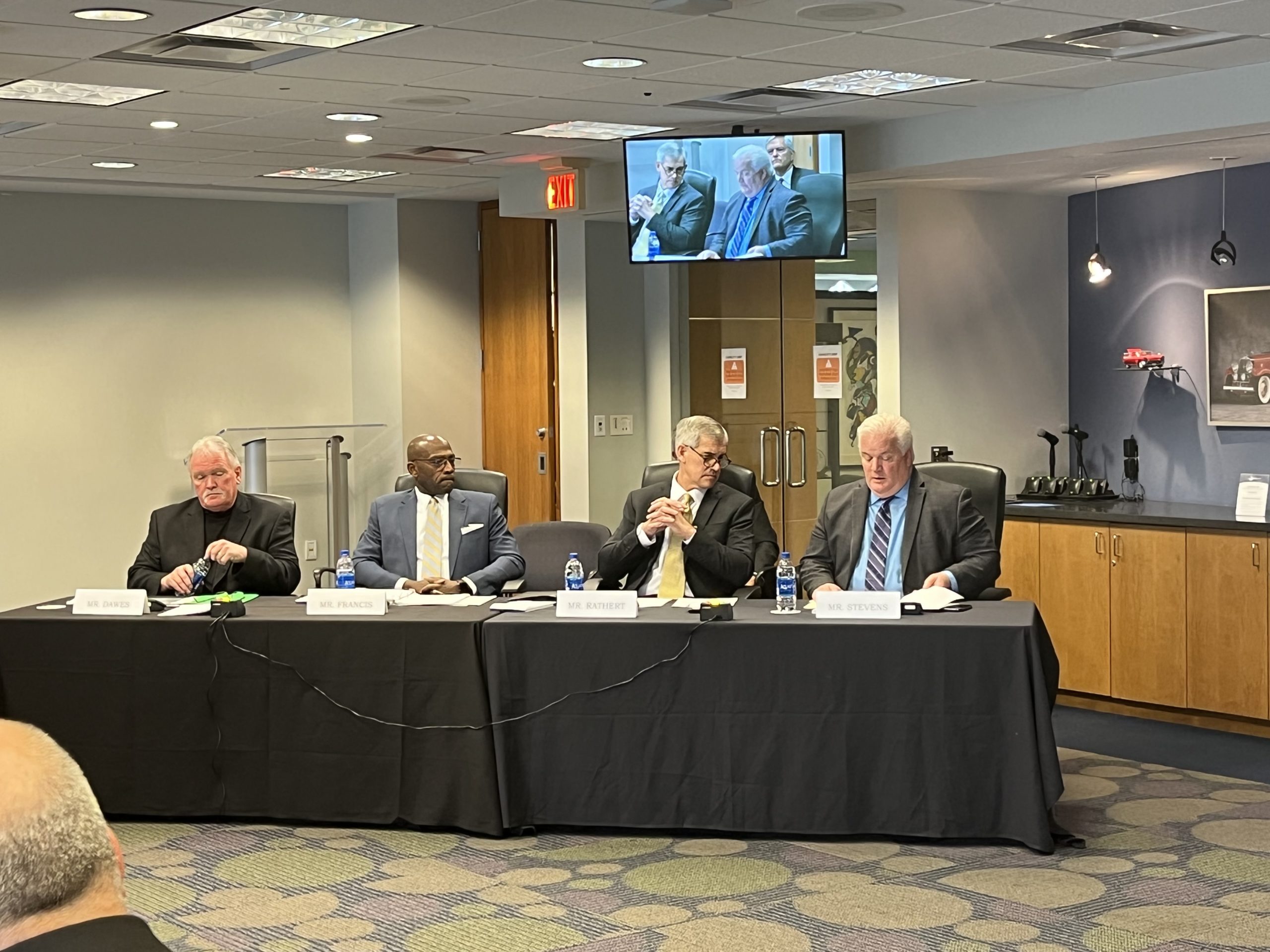 |
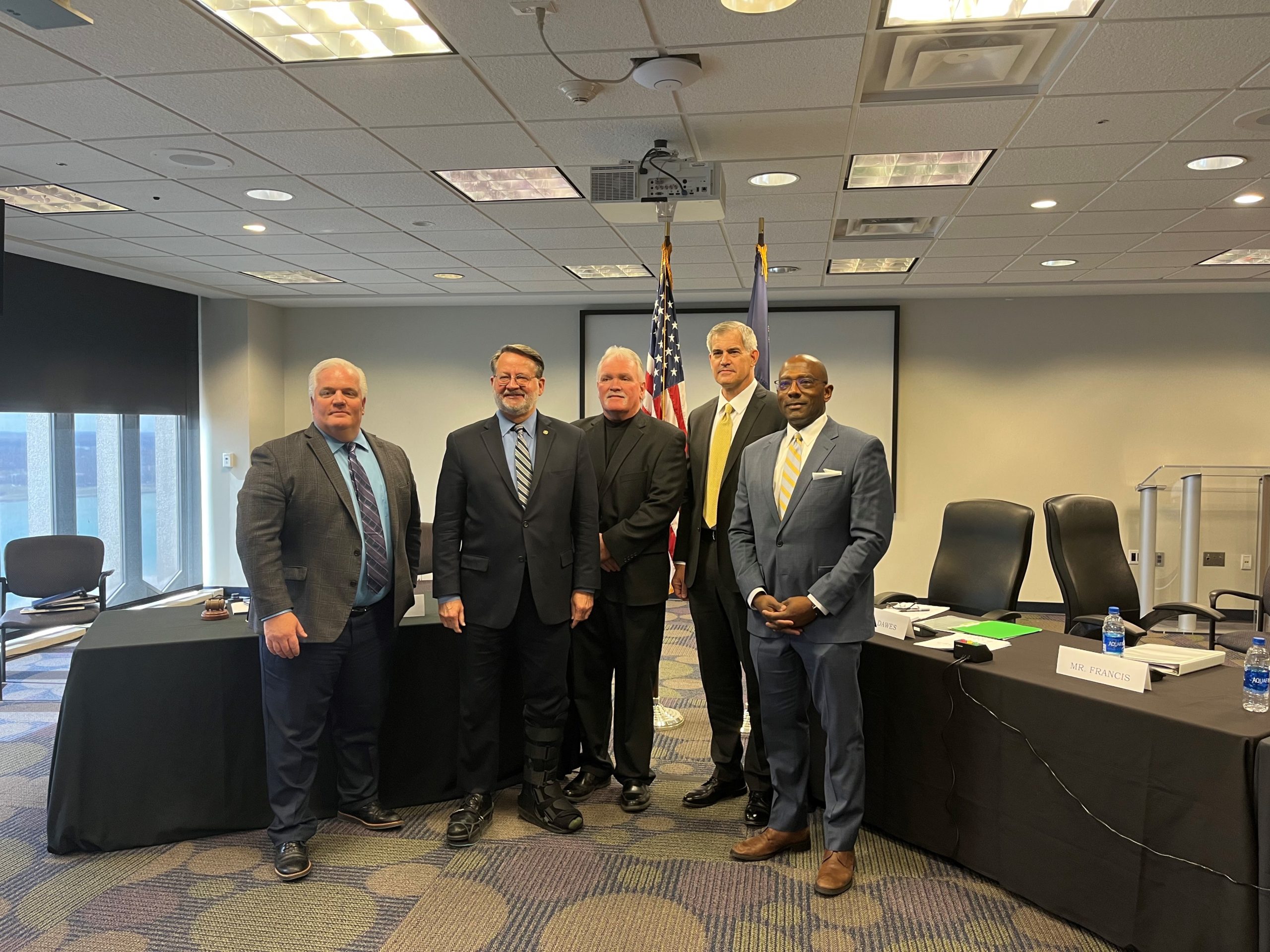 |
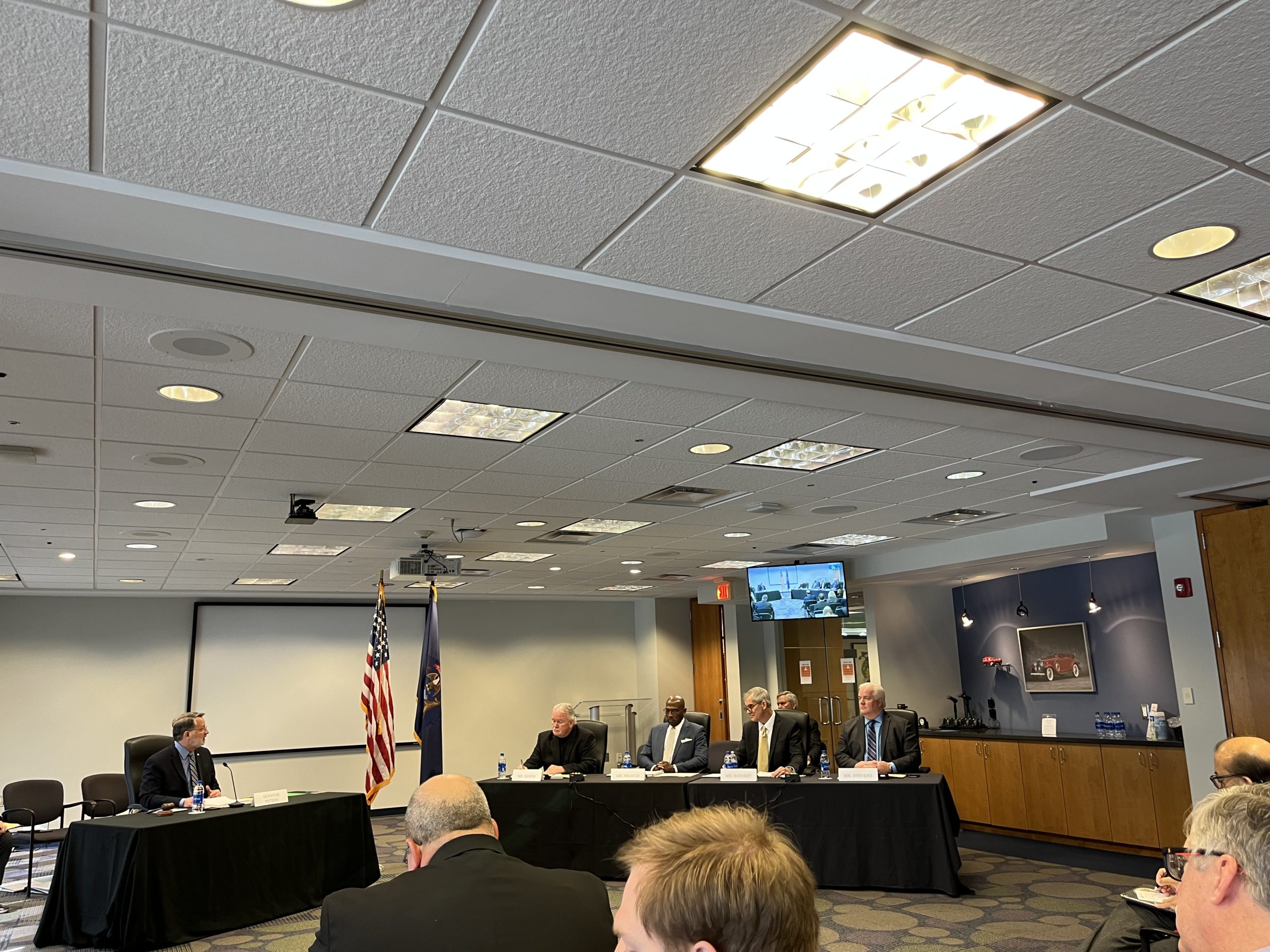 |
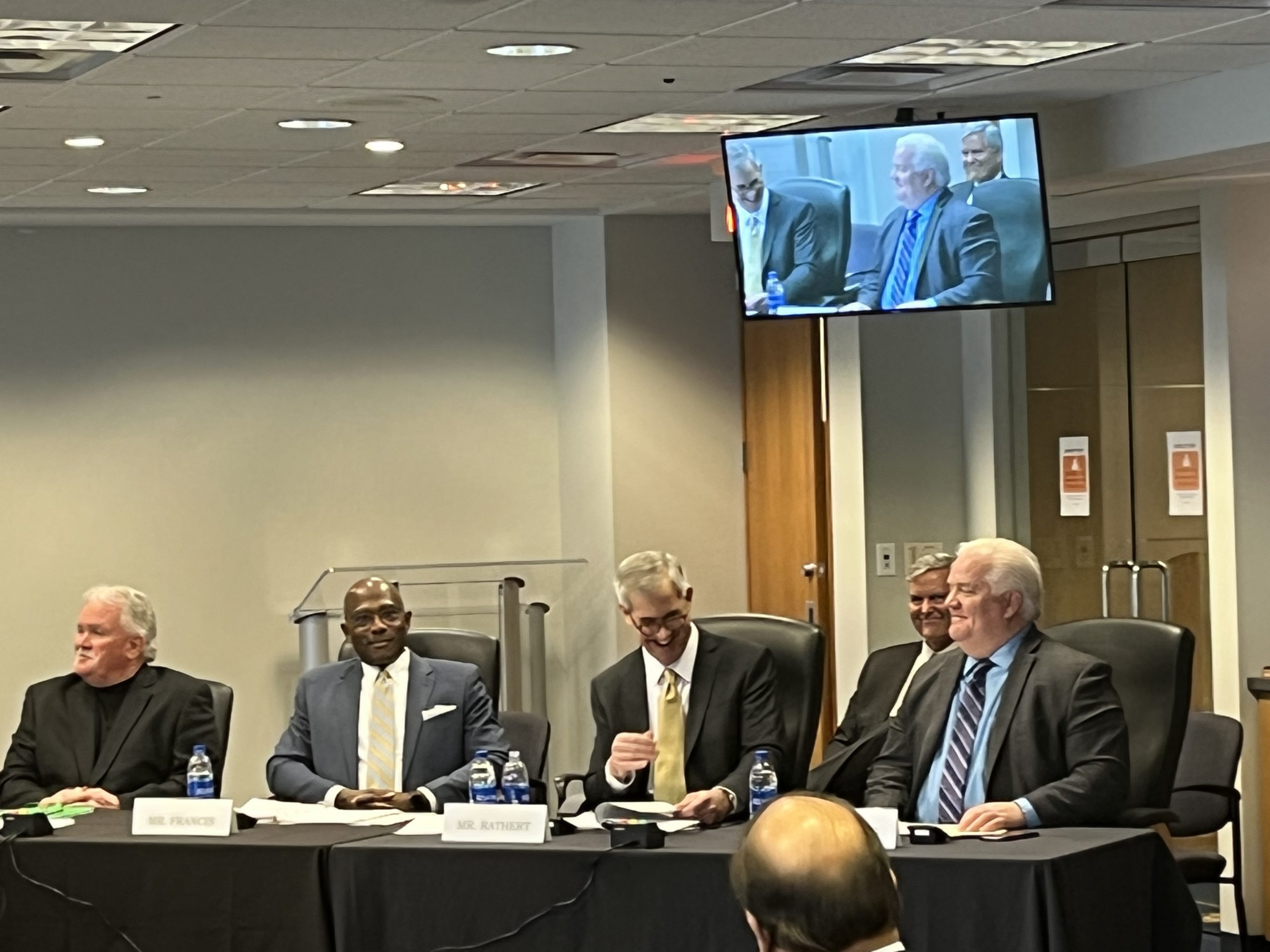 |
